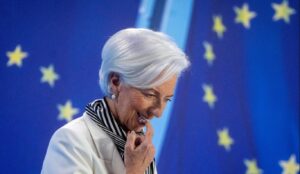Court Grants SEC’s Motion to Extend Discovery Period in Ripple Case
2 min readA Judge has granted the Securities and Exchange Commissions’ (SEC) motion for an additional two months of time to conduct discovery in their case against Ripple.
XPR holders have themselves been holding on while they wait for any indication that the SEC’s case against Ripple is nearing a conclusion. But, according to a tweet by attorney James K Filan, the wait might be a bit longer. Filan shared the news that the SEC’s request to extend the discovery period of the investigation by 60 days was granted.
Despite this, a number of other SEC motions were denied in what many consider a weak case against XRP overall. Motions denied by the Judge include the SEC’s request for documents post-dating the complaint and documents from General Consul and Deputy Consul.
Filan followed up the announcement with another post declaring this a win for Ripple despite the extension. “This is a good sign for the fair notice defense. Judge Netburn has made clear to the SEC yet again that the focus of that defense is on the activities of the SEC and not on Ripple.” Attorney Jeremy Hogan said that he believes the extra two months extension will push this case into 2022. He adds that a settlement is still on the table, but that outcome is unlikely at this stage.
The SEC’s case against XRP
In the lawsuit, the SEC alleges that XRP is not a currency and is, in fact, a security. Due to this, the SEC alleges that a pair of executives sold $1.3 billion in unregistered securities offerings. Part of Ripple’s defense is that neither BTC nor ETH is securities according to the SEC due to their decentralized nature. Ripple argues they are being treated differently than their peers for operating in the same space.
Ripple has been trying to get answers and information as to why the SEC is not targeting BTC and ETH as well. Ripple claims they never held an ICO and denies any offering of securities or that it engaged in “a single offering of XRP. The court record shows that Ripple claims it has “never held an ICO, never offered future tokens to raise money, and has no contracts with the vast majority of XRP holders.”
Meanwhile, the SEC is under the belief that the development and distribution of XRP were done by Ripple in a centralized manner. The SEC not only has charged Ripple Labs, but also co-founders Brad Garlinghouse and Chris Larsen with conducting the $1.3 billion unregistered securities offering for selling XRP for the last eight years.
The post Court Grants SEC’s Motion to Extend Discovery Period in Ripple Case appeared first on BeInCrypto.







